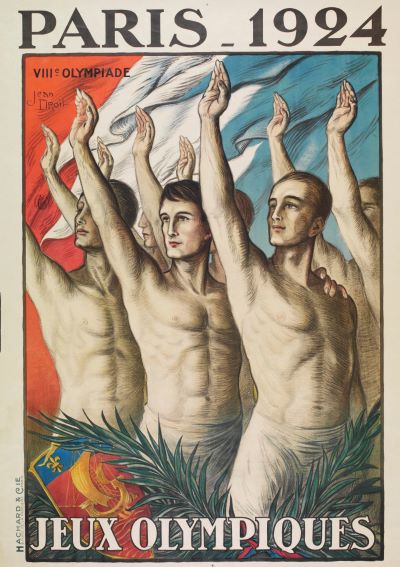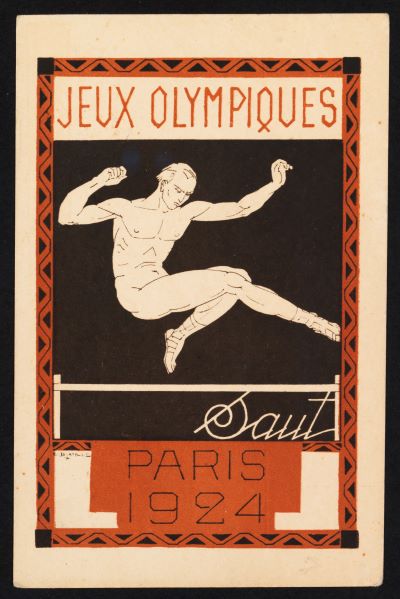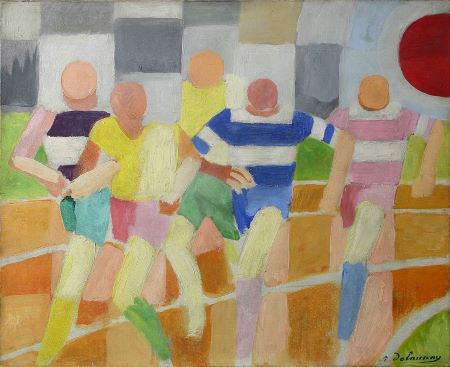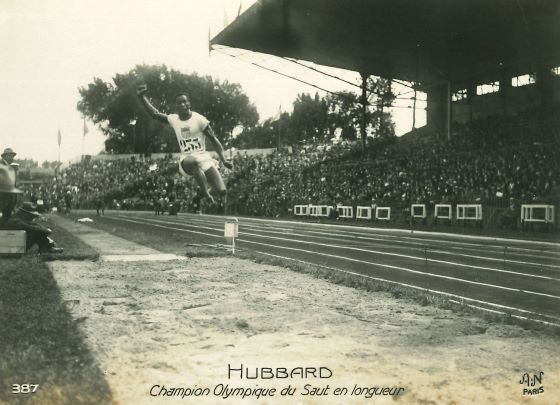Dick Holt, an Emeritus Professor for DMU’s renowned International Centre for Sports History and Culture (ICSHC), has worked as an advisor for a new exhibition about the 1924 Paris Olympics.
It opens today at the University of Cambridge’s world-famous Fitzwilliam Museum. Here, Prof Holt tells the story behind the show…

Emeritus Professor Dick Holt
The Fitzwilliam Museum at the University of Cambridge is marking the Summer Olympics with a major exhibition, opening on 18 July, for the centenary of the 1924 Paris Games - made famous by the Oscar-winning film ‘Chariots of Fire’ in 1981.
This was the Paris of Pigalle and Picasso, ‘les annḗes folles’ (the ‘crazy years’) after the horrors of the Great War, when Paris was a Mecca for artists and writers and Olympic sport - founded and championed by Frenchman Baron de Coubertin - took off.
This connection between culture and sport is at the heart of the show. Paris 1924 was the first ‘mediatised’ Olympics with over a thousand journalists from across the world and newsreel cameras were at almost all the events.

The Exhibition is ingeniously themed to capture Olympic sport as an expression of global modernity: sport as speed; sport as sex; sport and class and sport as a new form of consumption.
My job was to advise and support the Museum in the early stages and to write a catalogue essay to tell the story of the British athletes, whose remarkable achievements were unequalled for the rest of the century.
Harold Abrahams, the winner of the 100m, the son of a successful Jewish immigrant, determined to challenge Establishment prejudice; Eric Liddell, the Presbyterian Scot, who won the 400m after refusing to race on a Sunday. These two stories, already well-known through ‘Chariots of Fire’, called for further research.

But the Fitzwilliam show needed more: more from the University of Cambridge, whose record of representatives in Paris remains unequalled by any university by winning 11 Olympic medals, and more about the rest of the team, especially the unsung working-class medallists.
The British Olympic Association team ranged from the ‘gilded youth’ of Cambridge - Douglas Lowe, the understated ‘gentleman amateur’, who won the 800m, and the Etonian oarsmen who won the coxless fours, to the London policeman, Harry Malin, undefeated in 300 bouts, who successfully retained his middle weight title after being bitten by a French boxer. Or Harry Mitchell, who took the light-heavyweight title.
The small women’s team included both Lucy Morton from Blackpool, the daughter of a council worker, who won the 200m breaststroke after a crash in a Paris taxi, and Kitty Godfree, from a wealthy family, the reigning Wimbledon champion, who won silver in the doubles and bronze in the singles.

Delaunay painting, called 'The Runners', from 1924
All this took place in Paris, the artistic capital of the world, where the modernism of Picasso, Matisse and Delaunay, whose cyclists feature on the cover of the Exhibition Catalogue, challenged the old world of classical art beloved by the Baron de Coubertin.
On the track the Finn, Paavo Nurmi, the arch disciple of a new ‘scientific’ approach to sport, and in the pool Johnny Weissmuller, the future Hollywood Tarzan, took the limelight.
There was a first individual gold medal for a Black American athlete, DeHart Hubbard, and Uruguay showed the world South American football had come of age, with its star player, Josḗ Andrade, who gained the nickname ‘The Black Marvel’.

De Hart Hubbard won the first individual gold for a Black American athlete
All this and much more are crammed into what promises to be a great show, curated by Professors Chris Young and Carrie Vout, with an excellent team from the Fitzwilliam, including their outstanding Research Assistant Rebecca Virag . It has been a privilege to have a part in what promises to be a path-breaking and popular show.
Posted on Friday 19 July 2024